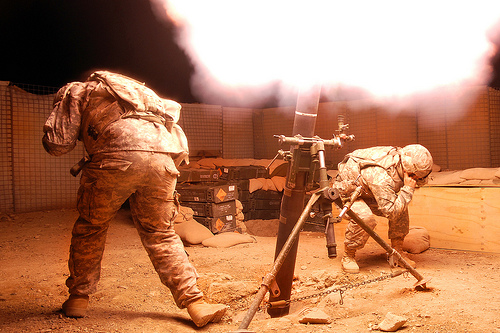Wars could cost over $4 trillion

Authors of the book The Three Trillion Dollar War now estimate that the total cost of the wars in Iraq and Afghanistan could top $4 trillion over time. A lagging economy, increases in the cost of medical care, higher than expected expenditures on post-combat medical and psychiatric care, and a surge in disability benefits are likely to place a significant strain on the federal budget.
House Veterans Affairs Chairman, Bob Filner (D-California), stated:
"This may be more of a crisis than the Medicare and Social Security problems we have looming...It rivals both in the potential impact. This is another entitlement we've committed ourselves to, and it could break the bank."
Filner aims on utilizing the latest cost estimates to propose a "veterans trust fund" to pay for the long-term war expenses, a proposal that has so far found minimal support in the Democratic-led House due to the startling price tag associated with it.
Having already blown past original cost projections, combat operations alone in Iraq, Afghanistan, and Pakistan have cost nearly $1.1 trillion in nine years. With well over 30,000 maimed for life, a PTSD epidemic, and record suicide rates (in the military), an estimated price tag of at least $4 trillion over the next several years appears to be reasonable.
As a result, those who claim to be fiscally conservative should take a long hard look at the immense cost of open-ended, overseas wars, especially at a time when America could be facing a debt crisis in the not-too-distant future. Vague objectives, shifting benchmarks, imprecise definitions of victory, and unclear exit strategies inevitably lead to costs that far exceed initial budget estimates.
In addition, those who claim to espouse a more progressive, anti-war stance should take a long hard look at the current war policy, as the trillions being spent could be better invested in infrastructure, health care, education, alternative energy, and other domestic programs. Perhaps the strategy of electing leaders who espouse peace, fiscal responsibility, and change in U.S. foreign policy, yet intensify wars, spend even more on the military, and adopt much of their despised opponents' previous platform, should be more critically examined.



